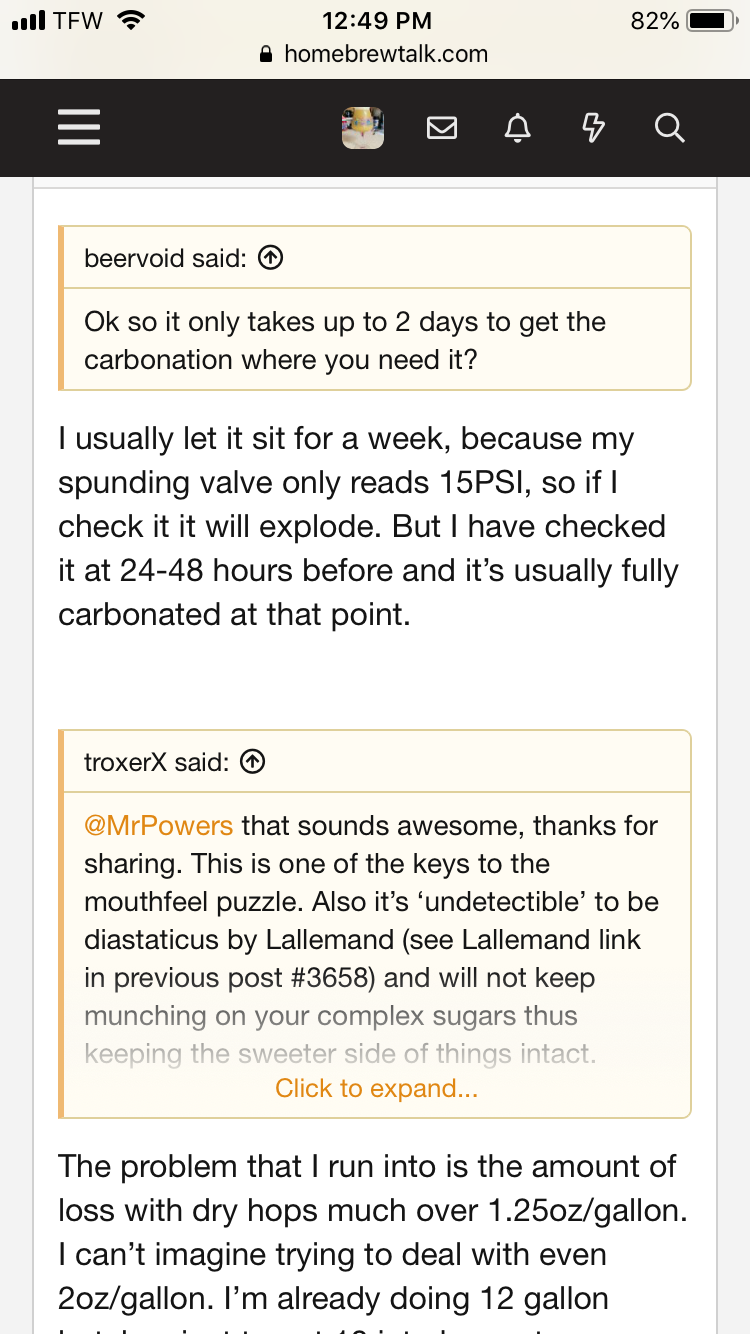HopsAreGood
Well-Known Member
I’m planning to carbonate a keg with a mixture of about 4 oz dextrose and 2 grams of CBC-1. The Lallemand calculator puts this at about 2.3 volumes at room temp (68-70 Fahrenheit)
My question is if I do this at room temp and achieve the 2.3 volumes I’m looking for, will it remain at the 2.3 volumes after I chill it down to serving temperature?
I’ve always force carbed using the classic keg carb chart when the beer is at my desired serving temp but have never done it this way.
Thanks in advance.
My question is if I do this at room temp and achieve the 2.3 volumes I’m looking for, will it remain at the 2.3 volumes after I chill it down to serving temperature?
I’ve always force carbed using the classic keg carb chart when the beer is at my desired serving temp but have never done it this way.
Thanks in advance.
Last edited:


























































